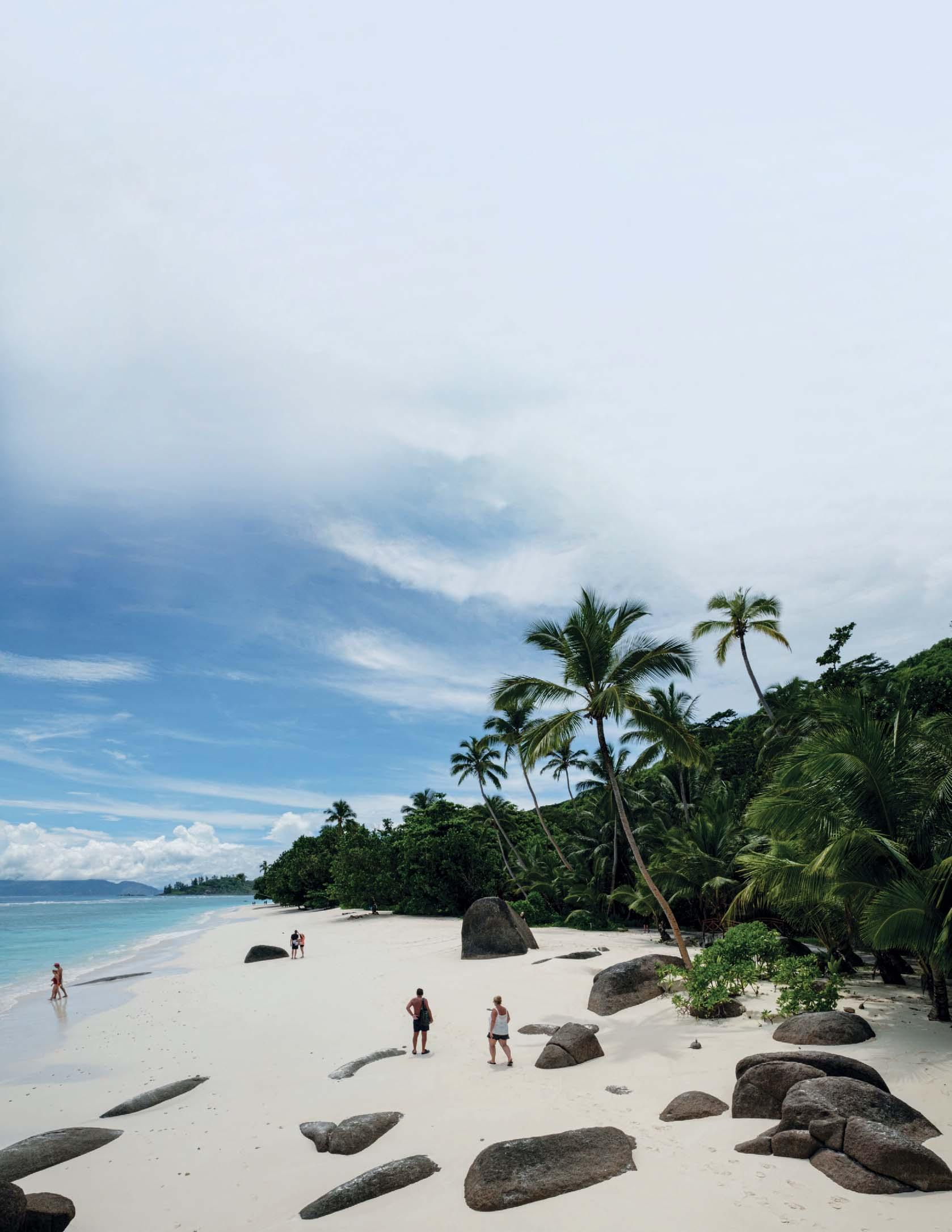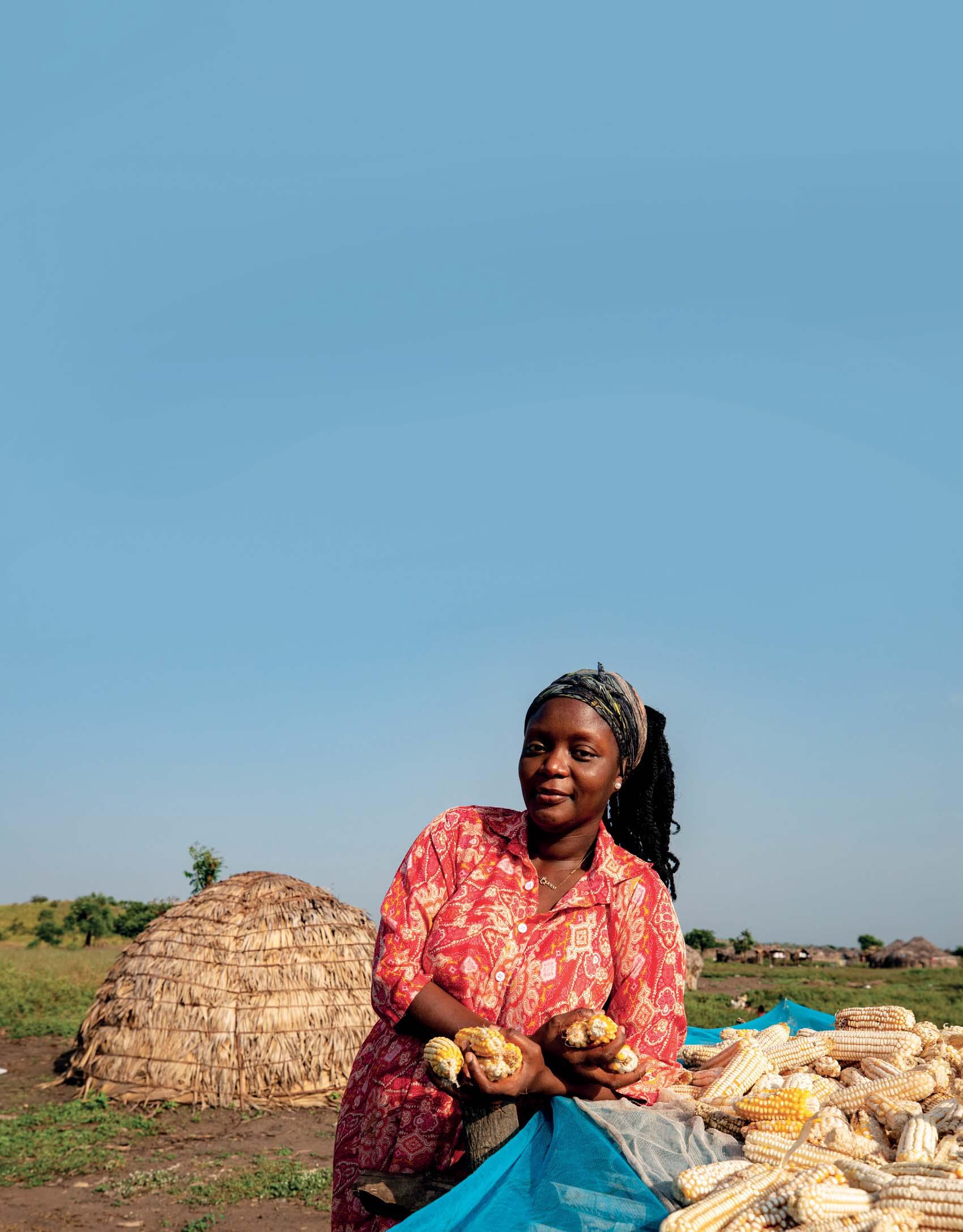
12 minute read
Briefs
Food has always had a huge cultural Africa. It brings people together, creates an identity and wherever you go in the world, you can take your food traditions with you. But food is not always simple.
Into our world of food uncertainty comes a new breed of chef, one who has been looking at their culinary art through a fresh lens with a new socially
Advertisement
The Basque Culinary World Prize, now in its seventh year, recognises these innovative chefs and in 2022 awarded this much desired award to Sierra Leone’s Fatmata Binta (below), for her inspiring ‘Dine on a Mat’ pop-up initiative, which highlights the sustainable food culture of the nomadic Fulani people. She is the the award and emerged as winner from over 1,000 nominees.
African food cannot narrative and the Sierra Leone born chef, who is now based in Ghana’s capital of Accra, is telling just one story, but it is a big story.
The Fulani people are one of Africa’s largest ethnic groups. Scattered across the Sahel / Savannah belt, they traditionally spent their lives as nomadic herders and sedentary farmers although today most of them live in towns and cities across West Africa. However, their food traditions are an important part of their lives and identity and are passed down from generation to generation.
Chef Binta has shared the essence of these food traditions across three continents in her immersive and interactive dining experience.
These ‘pop-up’ experiences have allowed her to raise funds for a project close to her heart – the Fulani Kitchen Foundation, which seeks to meet the social and educational needs of communities of Fulani women and girls.
Her initiatives include transforming typical ingredients such as fonio, a grain like cornmeal, into a lucrative form of income for local people.
The prize, a substantial €100,000 to be used for an initiative of the winner’s choice that embodies the power of gastronomy to impact our world, will be a welcome addition towards her goals.
WORLD-BEATING CHEF FATMATA BINTA SHARES JOY OF FULANI FOOD
From food on the table The African Food the extraordinary work of the women, men to Dr Eric Yirenkyi we cannot ignore the and technology in the
“Words are sweet but they never take the place of food.” Igbo proverb


When seasoned Gina PrinceBythewood, decided to make an epic, big budget movie, inspired by a slice of little-known history and a Black allfemale army, it was never going to be an easy task to persuade the Hollywood big guns to take the risk.
Hollywood studios are not known for embracing inclusivity unless it is closely allied to a dollar sign. But that is exactly what Sony did and The Woman King, now showing in all the world’s cinemas.
The studio is patting itself on the back. Within a few weeks of its opening in takings were already in the $100m bracket, double its production costs.
storyline from the very real Agojie, or Amazons of Dahomey (now southern Benin), the only documented all-female army in modern history.
It is a chronicle that researchers had spent decades piecing together, drawing on archives from Europe and West Africa that contain the memorandums of the European traders and missionaries. Their demise came about in the late 1800s, with the French invasion. it of being sugar-coated from reality but it should be taken for what it is – a spectacular entertainment that spins a glorious and exciting tale around these incredible women and although not always historically accurate, it will pique the interest of those wanting to know the authentic tale, to do a bit of research of their own.
Hollywood heavyweight and academy award winner, Viola Davis leads the ladies as Nanisca (below, centre), the Agojie’s general, alongside her daughter-like mentee Nawi, brilliantly played by South African actress, Thuso Mbedu. British actor, John Boyega, whose parents are of Yoruba descent, plays King Ghezo, one of the few characters who existed in the true history.
Filmed in South Africa and set in the 1800s, we are introduced to a group of brave all-female warriors who protect the African Kingdom of Dahomey. With the threat of a new foreign enemy looming, the general (Nanisca) makes the decision to train the next generation of recruits in order to protect and preserve their way of life.
Director PrinceBythewood’s trademark love story weaves its way in the background with Nawi falling for Malik (played by Jordan Bolger, who made his acting debut in British period drama hit, Peaky Blinders), whose mother was a Dahomey slave.
I will leave it to one moviegoer to have the last word: “I didn’t know this movie would evoke such emotion. It’s a thunderous triumphant story. It’s to learn more about the Agojie warriors.”

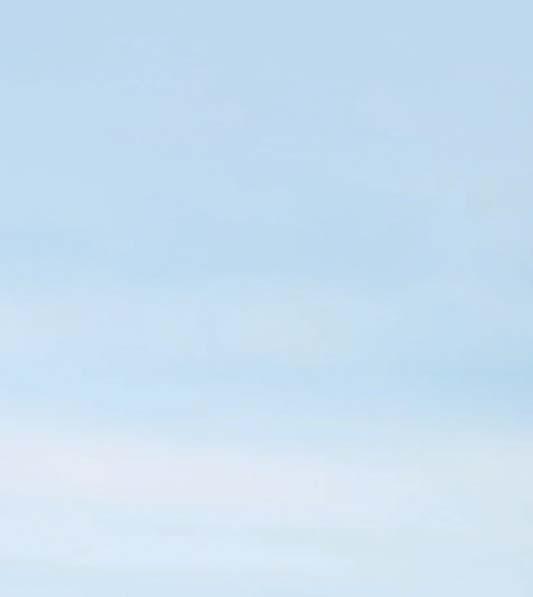
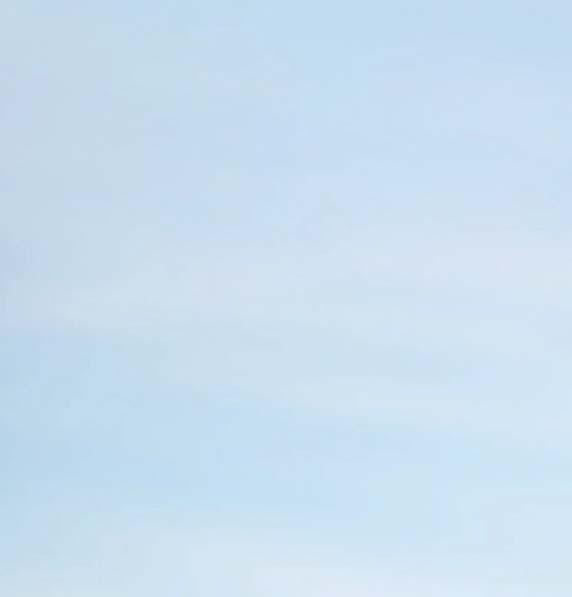
THE WOMAN KING WEARS THE CROWN OF SUCCESS
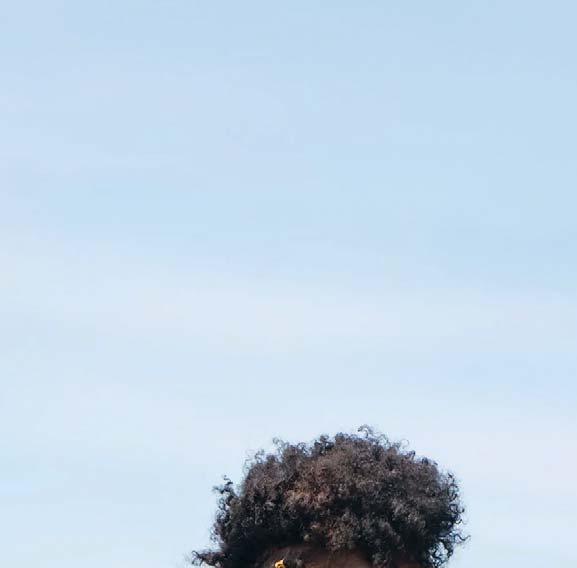
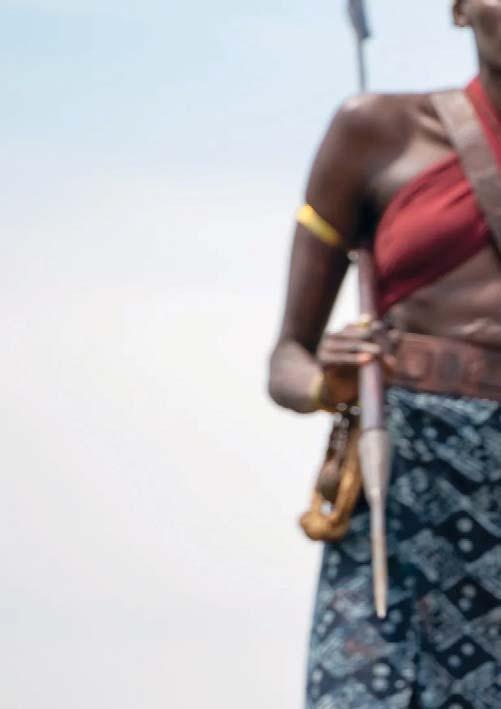


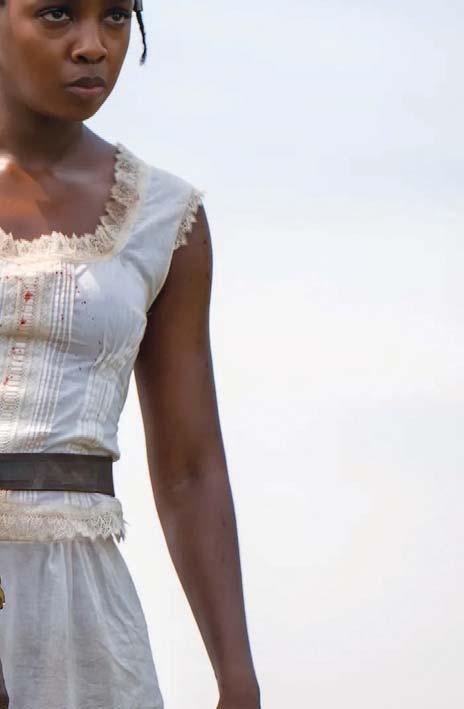

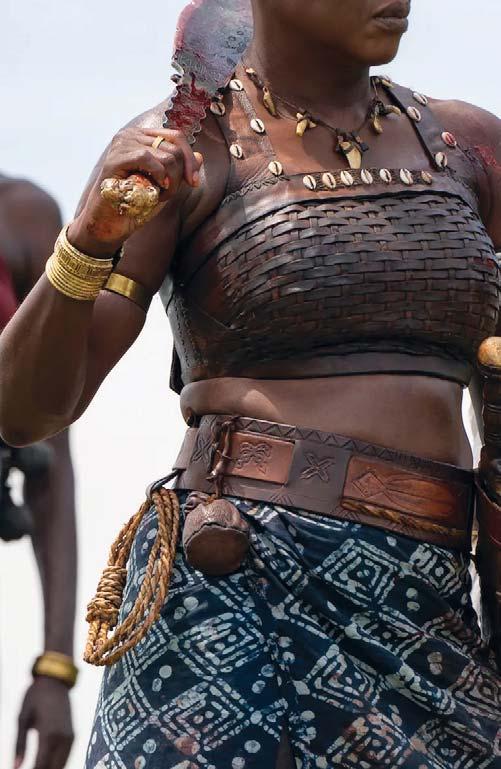





In 1956, a young HRH Queen Elizabeth II made a highly anticipated visit to Nigeria, at the time still a British colony. It was role was to soothe a growing restlessness in the country.
From the early 1950s, an artist named Ben Enwonwu had been making a name for himself, not just in his home country but abroad too, artist from the continent to achieve a global presence.
The international media gradually came to hail him as ‘Africa’s greatest artist’. He had been trained within the structure of Nigeria’s education programme, instigated by pioneer teacher and painter, Aina Onabolu, which led to winning a scholarship to the prestigious Slade School of Fine Art in London. He graduate.
When Enwonwu heard about the Queen’s visit he promptly proposed a sculpture of Her Majesty to commemorate her visit, to Alan Lennox-Boyd, then Secretary of State for the colonies.
By the end of 1956, Enwonwu received his sittings for his work began of the 12 sittings were undertaken in the Queen’s home, Buckingham Palace, but later took place in the studio of Sir William Redi Dick, an acclaimed Scottish sculptor, and colleague of Enwonwu, located in Maida Vale, London. the monarch at the 1957 annual exhibition of the Royal Society of British Artists in London. When it was unveiled, there was a quiet murmur about the thickness of her lips. This was a hallmark of the artist looking at his royal subject through “African eyes” and was applauded by the critics. piece of bronze art regally resides in the Nigerian national museum.







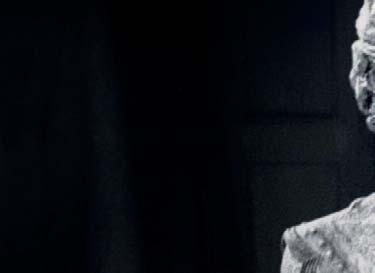
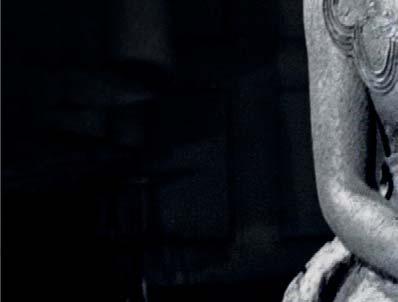
QUEEN ELIZABETH THROUGH NIGERIAN EYES
Nigerian artist Ben Enwonwu working on his statue of Queen Elizabeth II in 1957


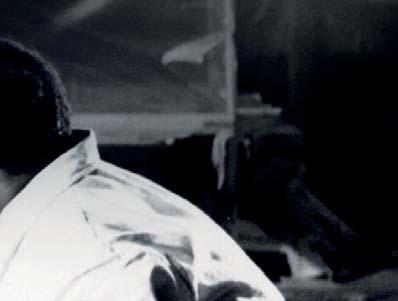


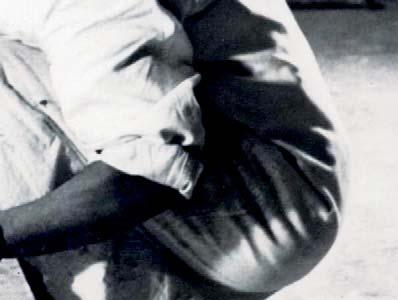

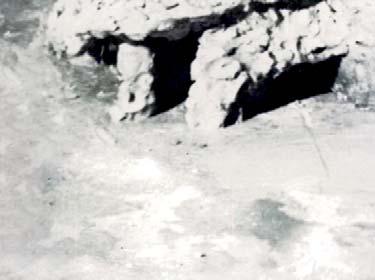
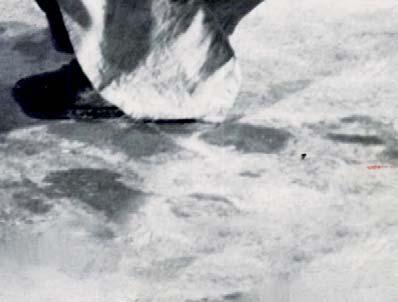
Nvery recently, Dr regional coordinator in accommodating more than global action for climate
CONGO RIVER DEPTHS DELIVER NEW FISH GENUS
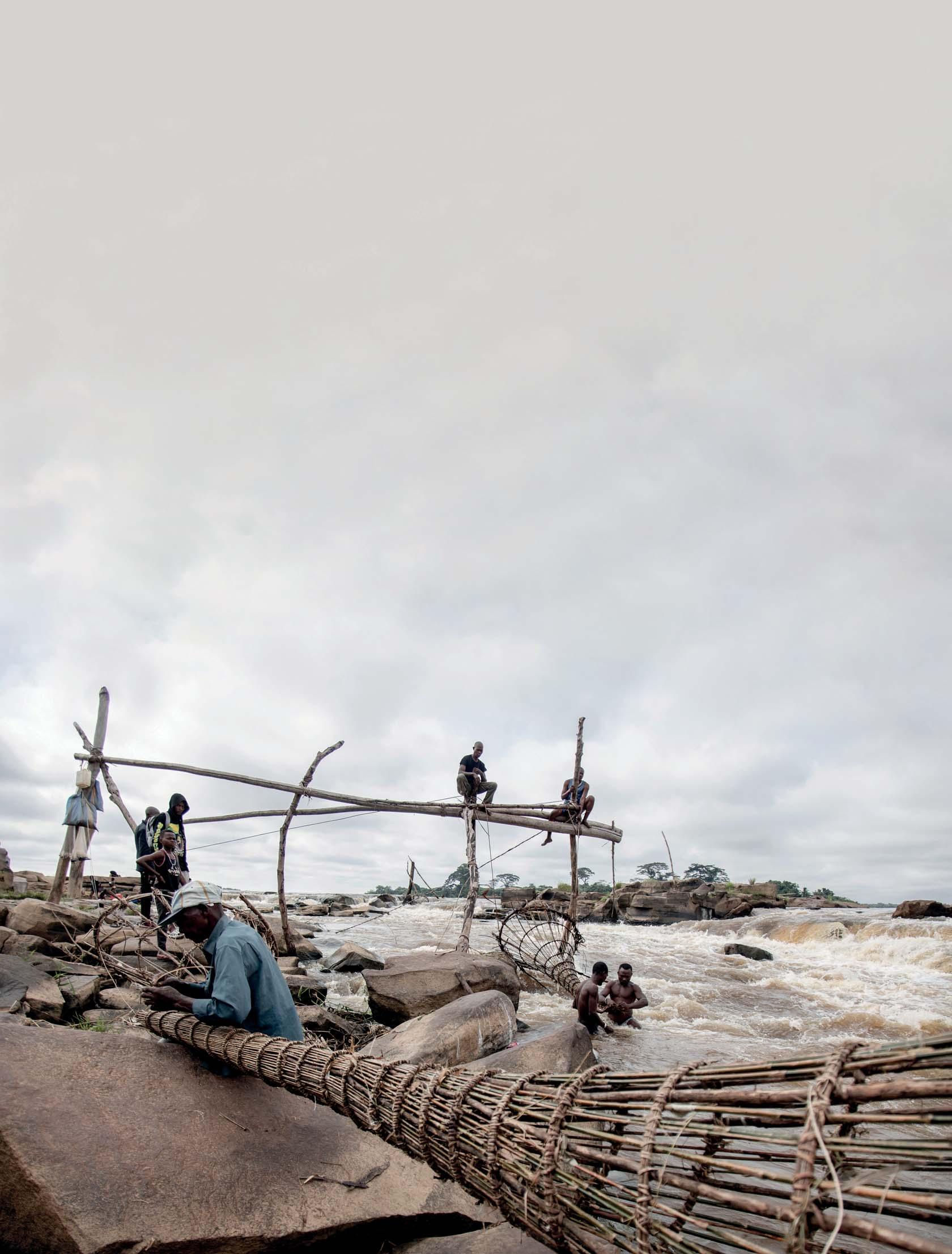
Think-tank warns of severe environment danger to Africa
The global think-tank, The Institute for Economics and Peace (IEP) has just released its 2022 Ecological Threat report. This comprehensive and data-driven analysis covers 99.99% of the world.
It does not make for comfortable reading. The we already know – without major international intervention, the levels of ecological destruction will knows at what point we will tip beyond repair. For Africa, the consequences of doing nothing are not tenable. The report highlights 27 hotspots, countries that are confronting catastrophic ecological threats whilst they are simultaneously home to the least social buoyancy. A very combustible combination.
Two thirds of these hotspots are in sub-Saharan Africa and of the eight deemed at the highest risk, seven are in this same region namely Burundi, Central African Republic, Chad, Republic of the Congo, Somalia, South Sudan and Uganda.
Into this region, already increasing food insecurity, water stress, ongoing population increase of 95% by 2050, a lack of action from our planet’s governments, corporations and people to radically change how we live in our world can only serve to light the fuse that brings a further explosion of
Steve Killelea, the IEP executive chairman, concluded the report by stating: “The world’s current approach to the countries related issues is not working; ecological threats are increasing and have systemic causes that require systemic solutions. Developmental programmes should focus on micro enterprises which capture water, improve agriculture, and on valueadded manufacturing. This will improve the lives of the most.”
The report should have focused minds during COP 27 in Sharm El Sheikh but ironically, reports suggest that African activists were sidelined during what was termed ‘Africa’s COP’!
In the waters of the rapids of the Congo River, the Wagenya fishermen continue to climb their spectacular wooden scaffolding to capture hogfish and tilapia
SACRED RIVERS AND ENDANGERED SPECIES THREATENED BY ILLEGAL MINING
The beautiful okapi, known as the ‘forest relative), is under threat from illegal gold mining in its habitat at the Okapi Wildlife Reserve in the Ituri forest, DCR.
Established in 1992,the reserve was listed as a UNESCO World Heritage Site in 1996 but only a year later was relegated onto UNESCO’s list of World Heritage in Danger sites alongside three of DRC’s national parks: Garamba, Kahuzi-Biega and the famed Virunga.
Environmental groups within the country are voicing strong concerns that the mining operations are expanding despite activities. The miners have also been accused of hunting the okapi for food and trading their skins. Already on the endangered species list, this latest peril is decreasing their numbers even further.
Industrial activity is continuing despite the ban and a major Chinese mining company has been named as the main culprit. It has been granted a government licence but environmentalists have stated that there has been a complete breach of practising responsible mining and its malpractice has been the cause of major deforestation in the area. A call to revoke the licence has been made but, whether or not this will happen remains to be seen.
In Nigeria, growing concerns are being voiced for the Osun River central Yorubaland in the southwest. The river is of great importance for the millions of people who rely on it for agriculture and
Named after one of Yorubaland’s most popular and revered deities, the Goddess of Creation, Love and Freshwater, the Osun River is a sacred and protected area.
Osun State is also home to some of the biggest gold deposits in Nigeria and although the community have managed to keep the miners, many of whom operate illegally, away from the immediate vicinity, they operate without a licence upstream. exploitation of the land caused alarm in 2019 when the water started to turn progressively brown. Such is the rivers draw, pop princess Beyoncé sang of its powers on her 2016 album, Lemonade. Today, the song may well have been quite
Every year the festival of Osun-Osgobo takes place, a ceremonial renewal of the pact between humans and the divine and part of the rich tapestry of the indigenous Yoruba religion, attracting 100,000 people annually.
Before this year’s festival, the Nigerian government had to take the decision to ban everyone from drinking from this sacred river as the discovery of hazardous amounts of arsenic, mercury and lead amongst other metals have already caused ill-health amongst local communities. A longterm sustainable solution is needed.
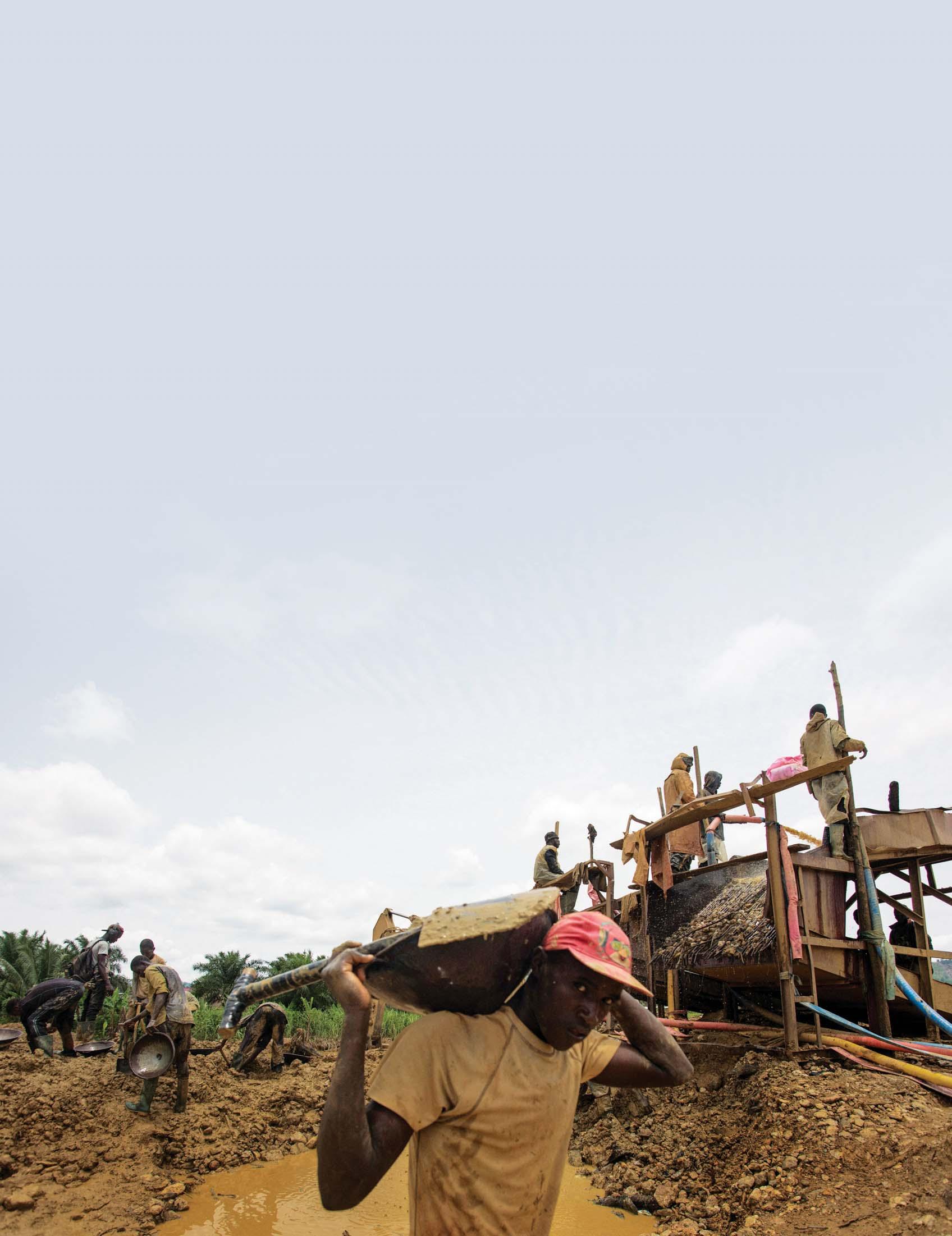
Miners at an artisanal gold mine near Kamituga in eastern DRC
The Henley Passport Index, based on the number of countries their holder can gain access to without having to apply for a government visa, is known as the ultimate ranking guide to the world's passports.
For each destination that the passport does not require a visa, one point is allocated. The index covers 199 passports and 227 destinations.
Since 2018, Japan has held the number-one spot, with 193 visa-free destinations its holder can currently travel to. A powerful passport indeed! Singapore and Germany follow closely in 2nd and 3rd place, respectively. So, where does Africa stand?
Whilst many African countries fall into the bottom half of this list, there are some which break that rule.
Ranking top of the African passports is Seychelles, the continent’s smallest country, an archipelago of around 115 Coming in the upper 15%, it lies 28th and has taken a step up the ladder from last year, providing access to 153 visa-free destinations.
In September 2022, the Seychelles also became the launch a Tourism Satellite means of measuring the economic impact of tourism on a destination.
It also boasts being one of the most unrestricted countries for travellers, as citizens from every country around the world can obtain permission to stay for up to three months on arrival, with an easy extension process up to a year.
Mauritius holds the second most powerful passport in Africa, allowing its holders visa-free entry to 146 destinations and ranking 31st. South Africa takes third place, ranking at 51st globally, with visa-free travel possible to 104 destinations.
The least powerful African passports are from Libya in the north, ranking at 104th and Somalia in the most easterly Horn, at 107th. But, for citizens of Afghanistan, their passport is the weakest in the world in 2022, allowing visa-free access to only 26 countries.
Happy travelling!
SEYCHELLES LEADS AFRICA’S DESIRABLE PASSPORT RANKINGS
